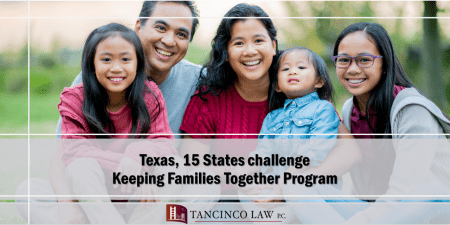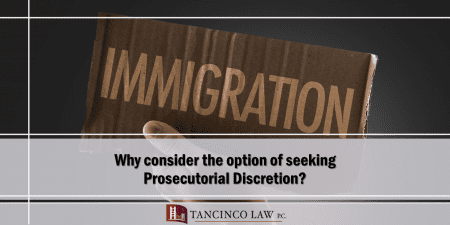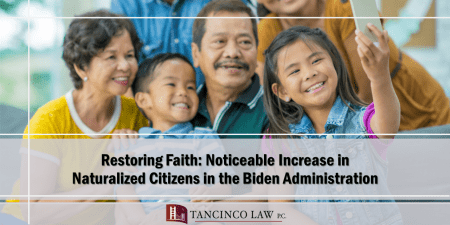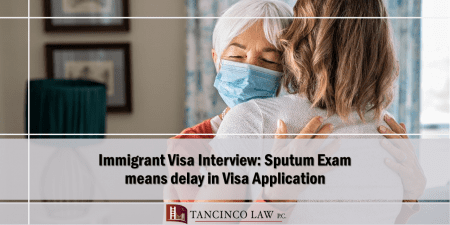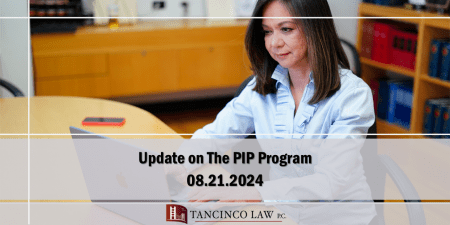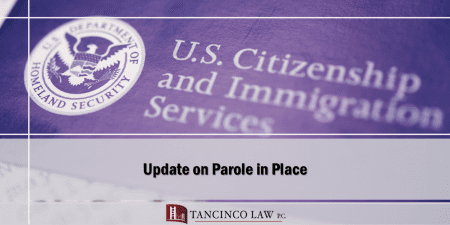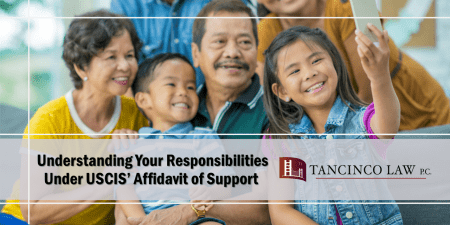Eligibility Gap: New Parole in Place (PIP) Program Leaves Some Non-Citizen Spouses Behind
On June 18, 2024, President Biden announced a new program targeting spouses of U.S. citizens who are unlawfully present in the country. This development sparked excitement among many non-immigrants without legal status, who viewed it as a potential pathway to citizenship. However, after waiting two months for the regulations to be released, it became clear that the majority of beneficiaries are likely to be nationals of Western Hemisphere countries.
The most critical eligibility requirement for this Parole in Place (PIP) program is that the applicant must not have entered the U.S. with a visa. If the applicant entered with an expired non-immigrant visa, such as a visitor’s visa, and overstayed their authorized period, their PIP application will be denied. To qualify, among other requirements, the applicant must be considered an “applicant for admission,” meaning they were neither inspected nor admitted at a port of entry or border checkpoint. This applies to individuals who entered the U.S. without inspection by a CBP officer, commonly referred to as EWIs (Entered Without Inspection).
According to the Federal Register notice, an estimated 64 percent of eligible non-citizens are Mexican nationals, while 20 percent hail from Guatemala, Honduras, and El Salvador. An additional 13 percent are from other Western Hemisphere countries. This PIP process reflects the U.S. commitment to addressing migration challenges throughout the Western Hemisphere, a goal shared with its partner countries. Several nations have requested regularization for their nationals who have resided in the United States for extended periods without lawful status. For instance, the Mexican government has urged the U.S. to regularize Mexican nationals who have been long-term residents in the country.
As the Philippines is not a Western Hemisphere country, only a small percentage of spouses of Filipino descent will be eligible for this PIP program. Since the Philippines is not a border country, travelers from non-border countries require both a passport and a visa to enter the U.S. Those who entered with a visitor’s visa (even if it has since expired) and are married to U.S. citizens do not need PIP, as they can file for adjustment of status.
Nevertheless, a significant number of Filipinos remain in unlawful status despite being married to U.S. citizens without options for legalizing their stay. There are cases of those who entered with visas but they fall victim to unscrupulous travel agents who take back the passport containing their visas. These individuals, who are unlawfully present in the U.S., may not apply for adjustment of status because they lack proof of entry. USCIS categorizes these travelers as having entered unlawfully.
Another group consists of Filipino spouses of U.S. citizens who “jumped ship” as crewmembers with C1/D visas and subsequently overstayed. Since they entered with a visa, USCIS deems them ineligible for PIP.
Although the Philippines is not a border country, some Filipino travelers have entered the U.S. by first traveling to a neighboring country, such as Mexico or Canada, and then crossing the border. Those who meet these criteria may apply for PIP and, if eligible, adjust their status to permanent resident.
Eligibility Criteria
There are two categories of individuals who may apply for PIP: spouses of U.S. citizens and stepchildren of U.S. citizens.
As mentioned, the applicant must be present in the United States without admission or parole.
For spouses, the requirements include:
- Continuous physical presence in the United States since June 17, 2014, through the date of filing the PIP request.
- A legal and valid marriage to a U.S. citizen on or before June 17, 2024.
- No disqualifying criminal history, and not deemed a threat to public safety, national security, or border security.
- Submission of biometrics and undergoing the required background checks and national security/public safety vetting.
For stepchildren of U.S. citizens, the requirements include:
- Being under the age of 21 and unmarried on June 17, 2024.
- Presence in the U.S. on or before June 17, 2024 (with no 10-year physical presence requirement).
- A non-citizen parent who entered into a legally valid marriage with a U.S. citizen on or before June 17, 2024, and before the stepchild’s 18th birthday.
- No disqualifying criminal history, and not deemed a threat to public safety, national security, or border security.
- Submission of biometrics and undergoing required background checks and national security/public safety vetting.
Filing Process
Eligible individuals may file their PIP requests either individually or through their legal representative. All filings must be submitted online via either an attorney’s USCIS account or an individual USCIS account. The filing fee for the PIP request is $580.
Potential Legal Challenges
Similar to the Deferred Action for Childhood Arrivals (DACA) program, there may be political efforts to halt this program. As of this writing, no litigation has been filed to suspend the PIP program. If litigation does occur and a PIP request has already been accepted by USCIS, the adjudication will depend on whether the court orders a temporary suspension.
Screening for Eligibility
Some prospective applicants, including widows and individuals in removal proceedings, may also be eligible. Each case is unique, and USCIS has indicated that it will adjudicate requests on a case-by-case basis.
It is important to note that PIP is not an immigration relief program, nor is it a form of “amnesty.” This is why not all unlawfully present spouses of U.S. citizens will qualify. However, for those who do qualify, PIP could provide a pathway to filing for adjustment of status as the spouse or
stepchild of a U.S. citizen. Since not all spouses or stepchildren will be eligible for PIP, it is advisable to have one’s case analyzed by a trusted legal counsel to determine eligibility or to explore other available legal options.
(Atty. Lourdes S. Tancinco is an immigration attorney and immigrant rights advocate based in the San Francisco Bay area and a partner at the Tancinco Law P.C. for 32 years. She may be reached at law@tancinco.com, www.tancinco.com, facebook/tancincolaw, or at 1-888-930-0808)
Related: Parole in Place Program Update (08/26/2024)


